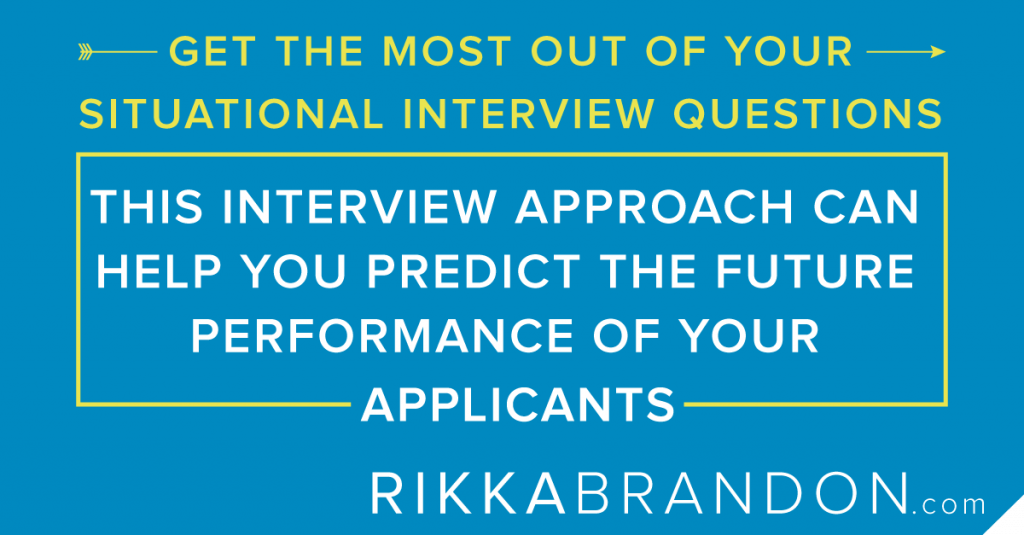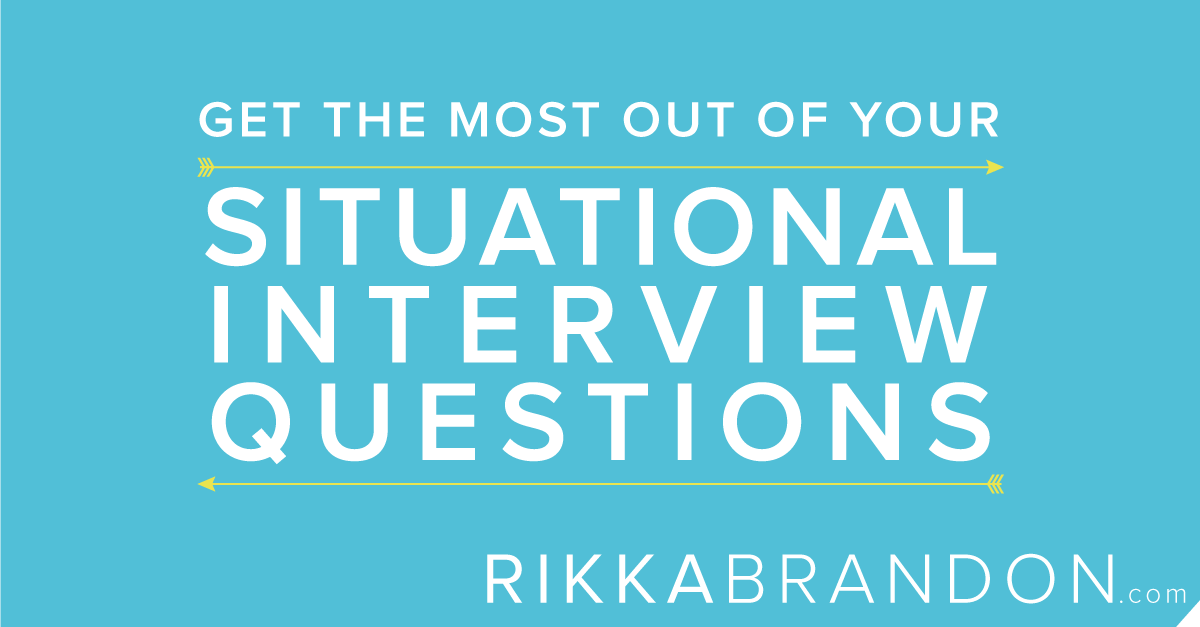Do you wish you could learn what the person you're interviewing will really be like on the job?
A crystal ball to show you their future performance? How they'll problem solve and handle stressful situations? How they will get along with the team and take constructive criticism?
Voila! The Situation Interview Question is the answer!
Situational Interview Questions
A situational interview question is one that requires job-seekers to respond to a specific hypothetical situation they may face on the job. Similar to Behavioral Based Interview Questions, situational interview questions are designed to “short-circuit” memorized answers and force the applicant to think on their feet.
The main difference between behavioral and situational interview questions is that behavioral questions are focused on the past and situational questions are focused on the future.
When done correctly, both behavioral and situational interview questions can give you a sense of a potential hire’s personality, work experience, thought process and communication skills – which is about as good as it gets in interviewing.
In order for you to get the most value from your situational interview questions, you have to break away from canned interview questions and really think about the position you are trying to fill and develop specific questions. I know that can feel a bit daunting, so I've included a few examples to get you started.

Here Are Some Examples of Situational Interview Questions
Multitasking
“A customer is walking in, the phone is ringing, and a co-worker needs help making a copy. Walk me through how you’d handle these competing needs for your attention.”
Sales Client Relationships
“Walk me through how you would build a relationship with a prospect. How would you take them from not knowing who we are and move them through to being interested in our product?”
Customer Relationships & Retention
“How would you handle a client who was angry with you over something that wasn’t your fault?”
Employee Management
“Let’s pretend you have an employee who everyone loves on the team. She’s just got great energy and is a ton of laughs. Unfortunately, she is also missing her activity goals weekly. She always has a really good reason for it and after you meet with her it seems like she is going to really focus next week and hit them, but she always falls short. How would you handle this “great” employee’s poor performance?”
Supervising
“If you were hiring a new employee for (fill in a role they’d be supervising), walk me through how you’d go about setting and communicating activity and performance expectations.”
The power of situational interviewing is to impede the candidate’s ability to respond with cookie-cutter answers, so the more creative and specific you are with your hypotheticals, the more likely you’ll get to see your potential employee's thought process in action, which is exactly what you want.
If you take some time to think about these questions and really tailor them to the position and workplace you have in mind, you’ll end up with a workforce you will get more value from.
You know what Zig says about motivation – right?
Like bathing, he recommends it daily. If you need some daily hiring motivation, check out our Facebook, Twitter, and Pinterest for daily tips on how to find and hire great employees!


Recent Comments